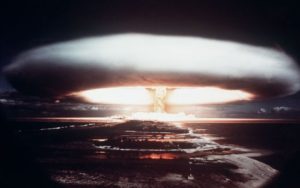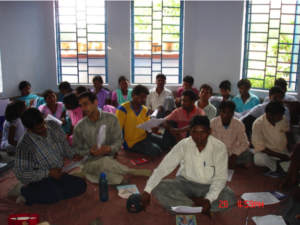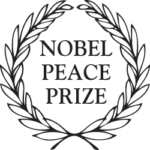Nuclear war would be nothing less than global extermination.
—Dr. Ron McCoy, former IPPNW co-president
 Nuclear weapons are the most devastating instruments of mass murder and environmental destruction ever created. Humanity might well not survive a nuclear war using even a fraction of the arsenals in existence today.
Nuclear weapons are the most devastating instruments of mass murder and environmental destruction ever created. Humanity might well not survive a nuclear war using even a fraction of the arsenals in existence today.
Unlike the consequences of natural disasters such as massive earthquakes, hurricanes, and volcanic eruptions, the thousands of casualties and the catastrophic damage from nuclear weapons use—including lethal harm from radiation and global climate disruption—are the result of human decisions. These consequences can and must be prevented by informed human action to ban and eliminate nuclear weapons.
IPPNW has compiled and presented the medical and scientific evidence about the consequences of nuclear war in order to support the case for effective steps to ban and eliminate nuclear weapons. While the science behind the blast, heat, radiation, and environmental damage produced by nuclear explosions is complex, the essential facts are easy to understand.
Why are nuclear weapons are in a class by themselves, and why do we have to consider them separately from other weapons that kill and destroy on a large scale?
- Even a single nuclear explosion over a city can kill tens of thousands—even hundreds of thousands—of people immediately. The casualties of a nuclear war in which even a small fraction of today’s arsenals are used would reach into the tens of millions.
- Nuclear weapons eradicate the social infrastructure required for recovery from conflict. Roads and transportation systems, hospitals and pharmacies, fire fighting equipment, and communications would all lie in rubble throughout a zone of complete destruction extending for miles.
- Nuclear weapons explosions have extreme and long-lasting environmental consequences, including disruption of the Earth’s climate and agricultural productivity.
- What makes nuclear weapons uniquely abhorrent is the ionizing radiation they release as a result of the uncontrolled chain reaction of fissile materials. Exposure to ionizing radiation causes both acute (immediate) and long-term health effects.
- There are numerous ways in which nuclear weapons cause extensive harm to health and the environment even if they are not used in war. The front end of the nuclear chain—the mining and processing of uranium that provides the fuel for nuclear weapons—has devastating health consequences for those who work in the mines and mills and for their families.
- There is also an enormous diversion of resources into the research and development, production, and deployment of warheads and their delivery systems, at the expense of real human and social needs that are inexcusably underfunded. World spending on nuclear weapons surpasses $100 billion every year. By contrast, the Stockholm International Peace Research Institute has estimated that it would take $135 billion to fully achieve the Millennium Development Goals. Instead, each of the nine nuclear-weapons states is engaging in large, expensive programs to modernize its nuclear forces and to ensure that they will continue to endanger us all for decades to come.

Nuclear Famine: climate effects of regional nuclear war
Online Resource: The humanitarian impact of nuclear weapons (HINW)
IPPNW campaign kit: Banning Nuclear Weapons: The Humanitarian Facts
To learn more about IPPNW’s nuclear weapons programs, contact Chuck Johnson.

